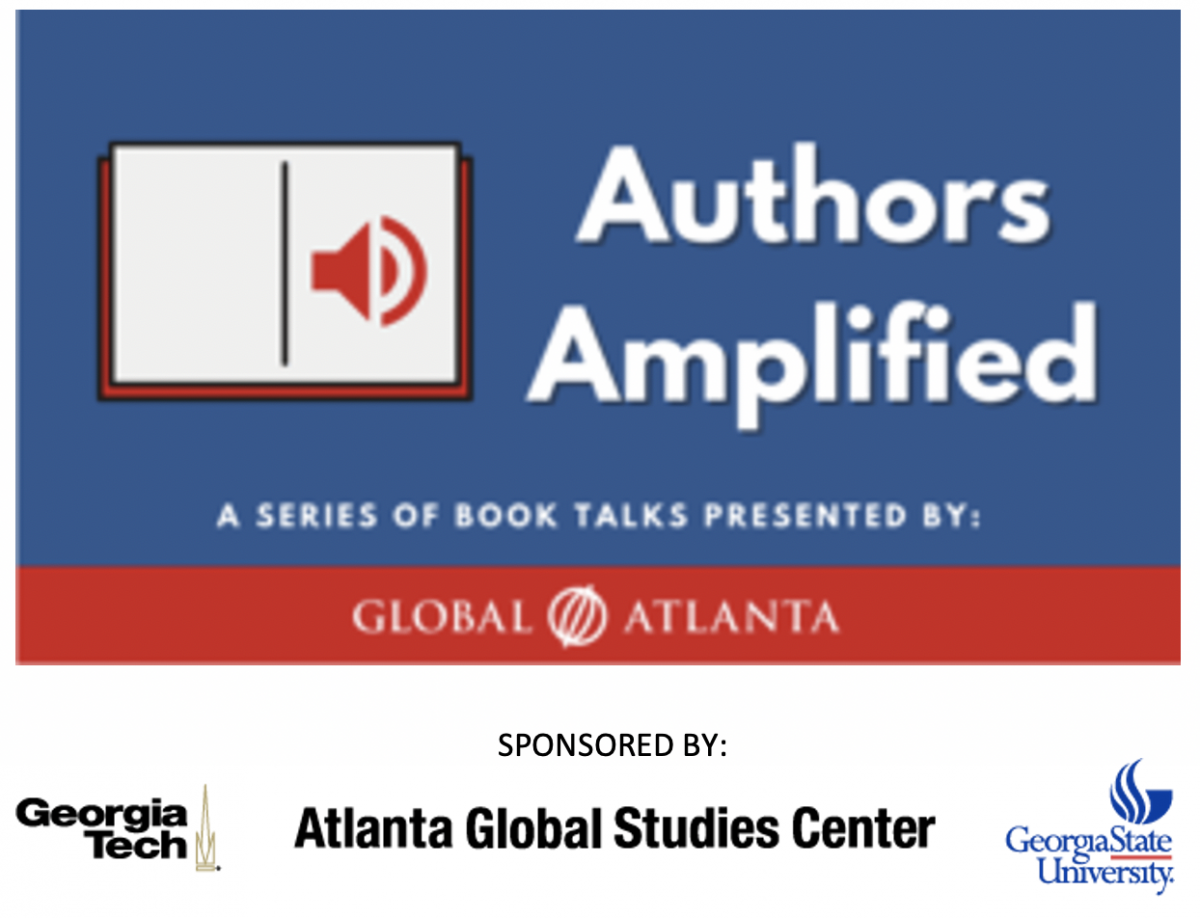
About the Series
Georgia’s deep pool of international expertise is sometimes hidden in the ivory towers of academia or overshadowed by looming national figures. Sought-after thought leaders sometimes shine globally while being ignored in their own backyard.
With Authors Amplified, a monthly series of book talks, we showcase authoritative local voices in foreign affairs and international business while highlighting the state’s intellectual contributions to important global conversations.
The Atlanta Global Studies Center is proud to partner with Global Atlanta to present this series.
Fall 2021 Events
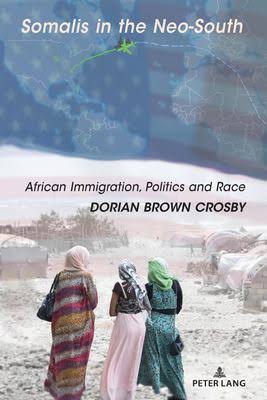

November 9 | 5 pm
Dorian Brown Crosby – Associate Professor of Political Science, Spelman College
Somalis in the Neo-South: African Immigration, Politics, and Race
meet & greet @5pm | book talk @5:30pm
In person &virtual – select your preferred option when registering
Refuge Coffee Co. – Sweet Auburn location
145 Auburn Ave NE
There will be a meet and greet at 5:00 p.m. in advance of the interview at 5:30 p.m. that will be broadcast live to Zoom, just in case you can’t join us in person.Can’t make it? The interview portion of this event will also be broadcast and viewable free of charge via Zoom at 5:30 pm. Please select your preferred option when registering. We are excited to announce that this event has provided us with the unique opportunity to partner with Refuge Coffee Co., at their first physical location, in Sweet Auburn for an evening event that celebrates refugee communities in Atlanta. As a non-profit organization, their objective is to provide job creation and job training for resettled refugees.
We are excited to announce that this event has provided us with the unique opportunity to partner with Refuge Coffee Co., at their first physical location, in Sweet Auburn for an evening event that celebrates refugee communities in Atlanta. As a non-profit organization, their objective is to provide job creation and job training for resettled refugees.
Refuge Coffee Co. began as a coffee truck that was founded and opened in Clarkston, a city where Dr. Crosby has dedicated much of her time working with, and a community that is a central focus in her book.
Dorian Brown Crosby
Read more about the book and author
About the Book
As demographics change and the southern American region grows more multicultural, clashes between mentalities and contemporary population realities increase. Somalis in the Neo-South: African Immigration, Politics and Race offers a balanced and insightful look at Somalis in the southern United States. Politically centered, it is a thought-provoking book that presents an essential and positive alternative to the familiar portrayal of Somalis in the United States as terrorists. It explains the U.S. resettlement process and illuminates the civic engagement and entrepreneurship of Somalis in Clarkston, Georgia, and Nashville, Tennessee.
About the Author
Dr. Crosby is a teacher and scholar-activist dedicated to bridging cultures through education. Her global and local activities infuse her teaching and research. She is committed to equipping students to take their places in the world.
Global Engagement: Listen to the 2014 Ghanian radio interview featuring Drs. Dorian Crosby and Veta Goler. They traveled to Africa with 27 Spelman students on the College’s first CIEE sponsored trip to Ghana. The interview aired on May 23, 2014 and was heard throughout the country. You can listen to it here. Dr. Crosby’s TV interview with Steve Goodman (Higher Education Today) can be seen here.
Consultation: Massara, K. (2010). The Gangs of Omaha: Sudanese Who Fled Their War-Torn Country Face Growing Violence in Their Ranks.
Grants: Social Justice Development Grant (2014); Gordon-Zeto Center Curriculum Development Grant (2013); Spelman Campus Leadership Initiatives Grant (2008); Nebraska Humanities Council Grant ( 2005)
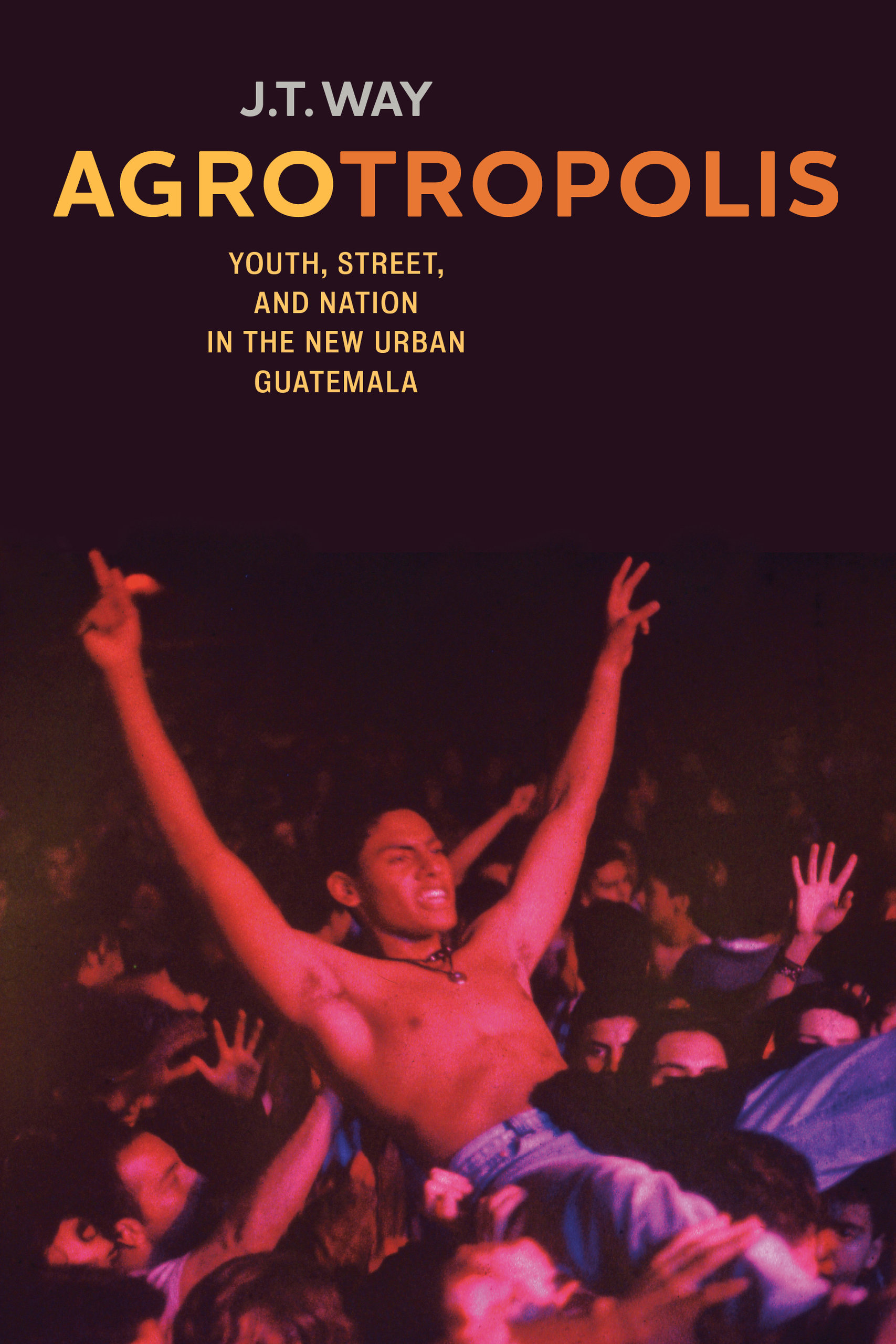
October 13 | 11 am
J.T. Way – Associate Professor of History, GSU
Agrotropolis: Youth, Street, and Nation in the New Urban Guatemala

J.T. Way
Read more about the book and author
About the Book
As a scholar whose research applies directly as testimony in asylum cases, J.T. Way is well-versed in why thousands of Guatemalans are fleeing for their lives. He explains many of these realities in his new book, Agrotropolis: Youth, Street, and Nation in the New Urban Guatemala. A fragile democracy in a country torn up by war and genocide gets gutted in its infancy as neoliberal policies shrink the state. Local thugs make towns their fiefdoms as lawlessness, corruption, and common and organized crime sweep the landscape. Neighborhood watch patrols become vigilante lynch mobs. Gender-based violence rises to the level of femicide. Youngsters make it through high school but find no work in an extractive economy propped up by migrants’ remittances and aptly symbolized by unregulated offshore banks. Hopes for a better life around the end of the war in 1996 fade in the next two decades as a “war of all against all” brings more violence and despair.
Agrotropolis draws on a varied archive of primary sources, as well as Way’s ethnographic field work in a nation he’s explored since 1991 and lived in from 2002 to 2012. It maps documents on politics, economics, and development against a kaleidoscopic array of cultural productions. It’s the first book to tell the story of Guatemalan rock nacional, with genres ranging from death metal to grunge to Maya rock-folk fusion and Spanish and Mayan-language rap. Way examines ad campaigns and pop-culture websites, blogs, and Facebook and YouTube posts and comments. The book also traces a florescence of new novels and films and an explosion in photography, painting, wild-style graffiti and break-dancing. All of these art forms arose in fertile dialogue with a “Maya power” movement that spearheaded a cultural sea-change in the nation. Street art, slang, style and fashion, leisure activities, and even the postures and gestures wrapped up in people’s “forma de ser” (way of being) all find a place in this history.
About the Author
J. T. Way is an Associate Professor who teaches and researches Latin American history at Georgia State University. A Central Americanist, his main area of specialty is 20th- and 21st-century Guatemala, about which he has published various articles and two scholarly books. The Mayan in the Mall: Globalization, Development, and the Making of Modern Guatemala (Duke, 2012) maps the transnational project of development against the activities of the working poor in Guatemala City from 1920 to the new millennium, showing how the largest city in Central America—where shantytowns and humble municipal and street markets abut luxurious malls and wealthy neighborhoods—came to have such stunning contrasts. Agrotropolis: Youth, Street, and Nation in the New Urban Guatemala (University of California, 2021) teams an examination of the rapid urbanization of the agrarian countryside with the history of popular youth culture from 1983 to the 2010s. It shows how youth have used ethnic pride, tradition, pop culture, and “street culture” to challenge the nation’s system of castes and create a popular alternative nationalism, despite—and in dialogue with—the horrible conditions that confronted them.
J. T. has extensively traveled in Latin America since he first explored the region in a 14-month-long backpacking trip in 1991 and 1992, later earning an MA in Latin American History at Tulane University, and a second MA and his Ph.D. (2006) from Yale. He likes to joke that he left to do his doctoral research in Guatemala in 2002 and “never came back,” since he ended up residing in the country until he joined the GSU faculty in 2012. During that time, he founded and led a U.S.-international school and was a Faculty Affiliate of the University of Arizona, teaching undergraduate and graduate courses on Guatemala at CIRMA, the Center for Mesoamerican Research (Centro de Investigaciones Regionales de Mesoamérica, a prestigious social science archive and research center in Antigua, Guatemala). At the time he joined the GSU faculty, J. T. was serving as CIRMA’s Director, a position he held from abroad through the first trimester of 2013. When global health conditions permit, he still spends several months a year in Guatemala, and is currently working on a book on the root causes of the flood of refugees from the Northern Triangle seeking asylum in the United States. He also regularly serves as an expert witness in asylum hearings for Guatemalans and Hondurans.
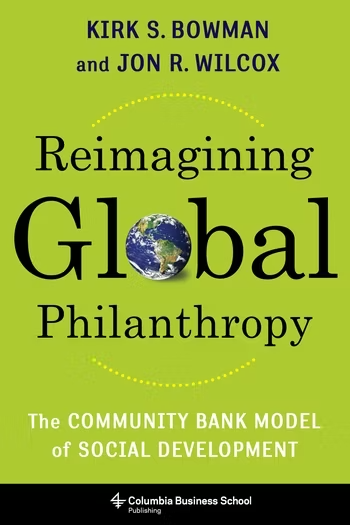
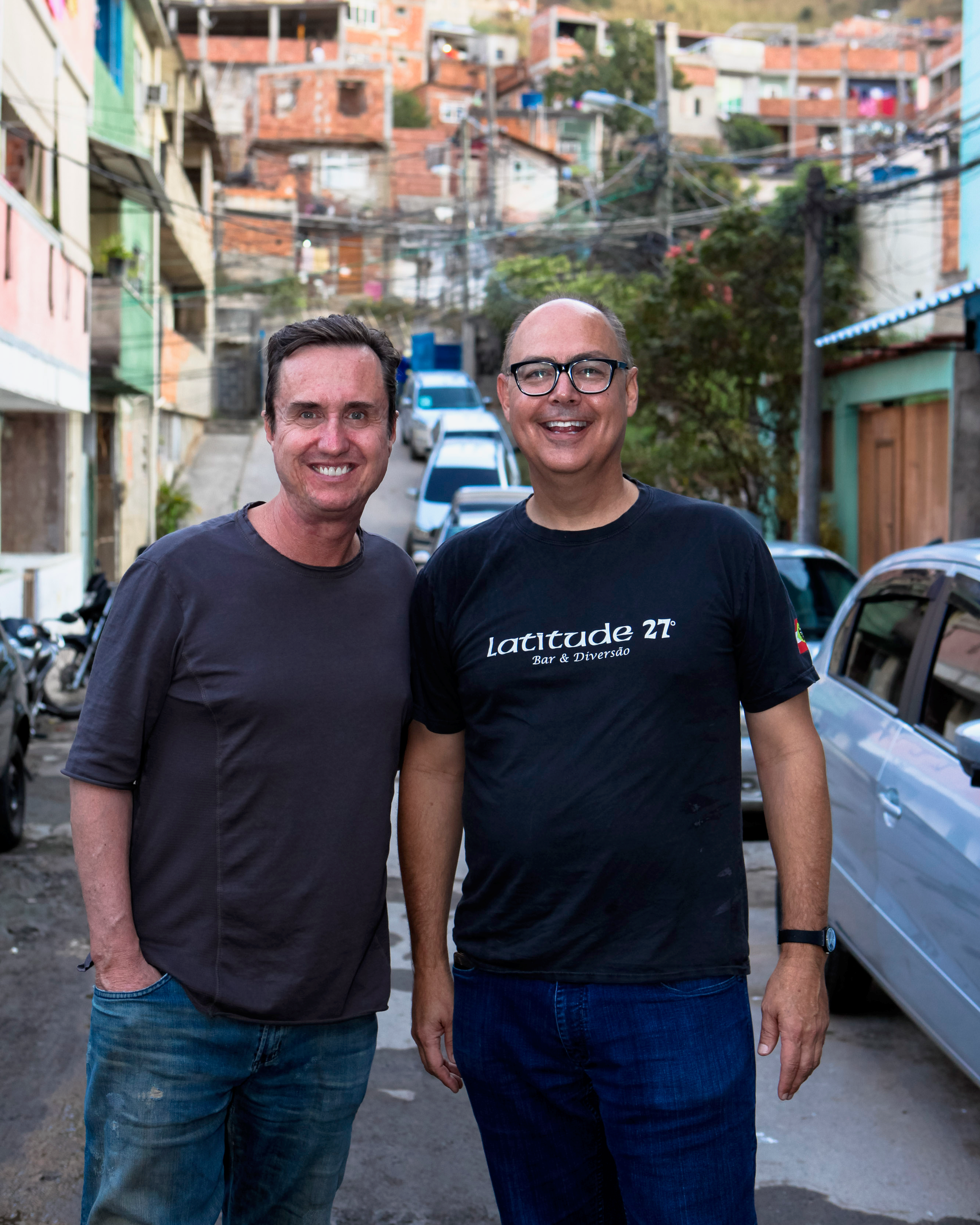
Kirk S. Bowman (right) and Jon R. Wilcox (left) in Chacrinha, Rio de Janeiro.
August 24 | 11 am
Kirk S. Bowman and Jon R. Wilcox
‘Reimagining Global Philanthropy’
Bowman and Wilcox recount how they tested the model in Brazil, demonstrating the value of giving people in marginalized communities the opportunity to innovate. Dr. Bowman and Mr. Wilcox are the authors of the recently released book Reimagining Global Philanthropy: The Community Bank Model of Social Development.
Kirk S. Bowman and Jon R. Wilcox
Read more about the book and author
About the Book
Well-meaning Westerners want to find ways to help the less fortunate. Today, many are not just volunteering abroad and donating to international nonprofits but also advancing innovations and launching projects that aim to be socially transformative. However, often these activities are not efficient ways of helping others, and too many projects cause more harm than good.
Reimagining Global Philanthropy shares the journey of a conservative banker and a progressive professor to find a better way forward. Kirk S. Bowman and Jon R. Wilcox explain the boom in the global compassion industry, revealing the incentives that produce inefficient practices and poor outcomes. Instead of supporting start-up projects with long-shot hopes for success, they argue, we can dramatically improve results by empowering local leaders.
Applying lessons from the success of community banks, Bowman and Wilcox develop and implement a new model that significantly raises philanthropic efficacy. Their straightforward and rigorously tested approach calls for community members to take the lead while outside partners play a supporting role. Bowman and Wilcox recount how they tested the model in Brazil, demonstrating the value of giving people in marginalized communities the opportunity to innovate. In a time of widespread social reckoning, this book shows how global philanthropy can confront its blind spots and failures in order to achieve truly transformative outcomes.
Readers can access five of the documentary films discussed in the book on a companion website. In addition to the films, chapter discussion questions and other supplemental materials are also available at the site.
About the Authors
Kirk S. Bowman is a professor in the Sam Nunn School of International Affairs at the Georgia Institute of Technology. He is co-founder and director of the international NGO Rise Up & Care. His books include Lessons from Latin America: Innovations in Politics, Culture, and Development (2014).
Jon R. Wilcox is the co-founder and the former president, CEO, and director of California Republic Bancorp. His current and previous board affiliations include Mechanics Bank, Waterfall Bridge Capital, Rise Up & Care, South Coast Repertory, Junior Achievement, and Fiji Reef Resources
Summer 2021 Events
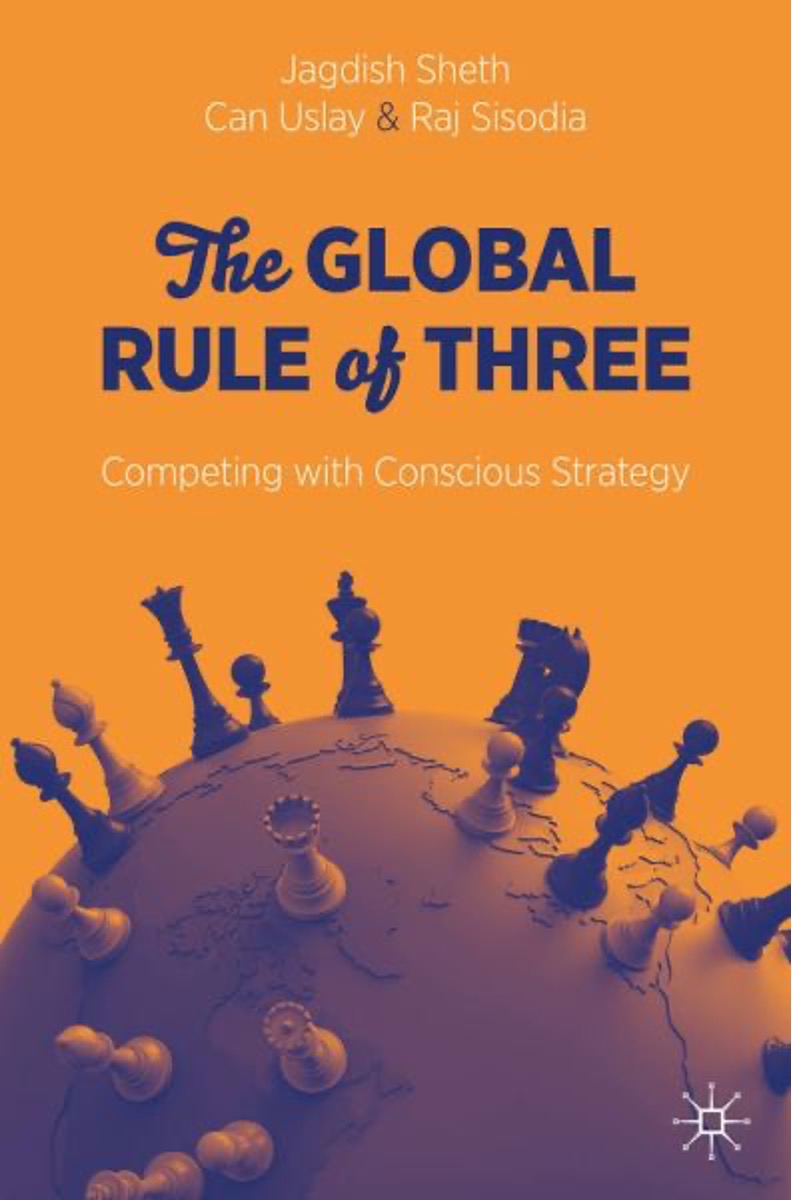
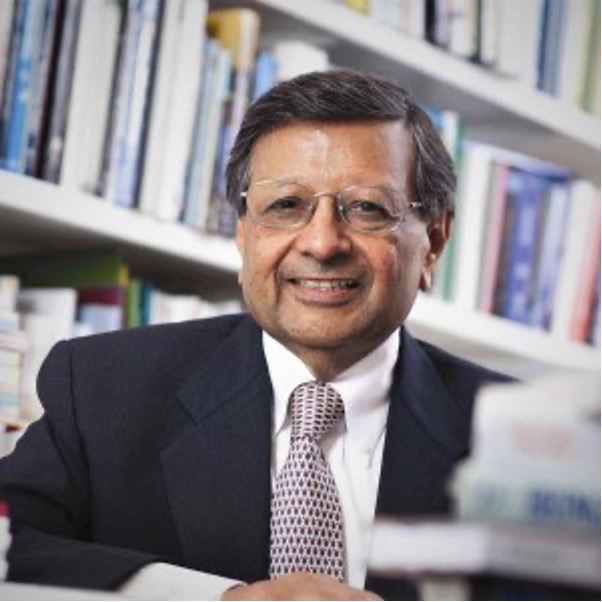
July 13 | 11 am
Jagdish N. Sheth – Charles H. Kellstadt Professor of Business, Emory University Goizueta Business School
The Global Rule of Three: Competing with Conscious Strategy
Jagdish N. Sheth
Read more about the book and author
About the Book
In our increasingly digital, mobile, and global world, the existing theories of business and economics have lost much of their appeal with the phenomenal rise of Chindia, the reality of Brexit, the turmoil caused by the Covid-19 pandemic, and the seismic shifting of the global center of gravity from west to east. In the area of innovation, the traditional thinking that a developed country, often the US, will come up with the next major innovation, launch at home first, and then take it to other markets does not ring true anymore. Similarly, the world where conglomerates go bargain-hunting for acquisitions in emerging markets has been turned upside-down.
This book reveals and illustrates the Global Rule of Three phenomenon, which stipulates that in competitive markets only three companies (which the authors call “generalists”) can dominate the market. All other players in the market are specialists. Further, whereas the financial performance of generalists improves as market share increases, specialist companies see a decrease in financial performance as their market share increases, as the latter are margin-driven companies. This theory powerfully captures the evolution of global markets and what executives must do to succeed. It is based on empirical analyses of hundreds of markets and industries in the US and globally. Competitive markets evolve in a predictable fashion across industries and geographies, where every industry goes through a similar lifecycle from beginning to end (or revitalization). From local to regional to national markets, the last stop in the evolution of markets is going global. The pattern is so consistent that it represents a distinct and natural market structure at every level. The authors offer strategies that generalists and specialist should follow to stay competitive as well as twelve expansion strategies for global companies from emerging markets.
This book chronicles this global evolution and provides impactful managerial implications for executives and students of marketing and corporate strategy alike. We’ll also glean insight from Dr. Sheth on what the tenuous ties among what he calls “The New Triad Power” — the U.S., India and China — which are facing turbulent period in their relations.
About the Author
Jagdish N. Sheth, Charles H. Kellstadt Professor of Business, Goizueta Business School, Emory University. He is globally known for his scholarly contributions to consumer behavior, relationship marketing, competitive strategy, and geopolitical analysis. Over 50 years of experience in teaching and research at the University of Southern California, the University of Illinois at Urbana-Champaign, Columbia University, MIT, and Emory.
Dr. Sheth is a recipient of the 2020 Padma Bhushan Award for literature and education, one of the highest civilian awards given by the Government of India. He is a Fellow of the Academy of International Business (AIB); the Association of Consumer Research (ACR); the American Psychological Association (APA); and the American Marketing Association (AMA). He is a Distinguished Fellow of the Academy of Marketing Science (AMS) and the International Engineering Consortium. He is the recipient of all four top awards given by the American Marketing Association (AMA). Professor Sheth has been an advisor to numerous corporations all over the world. He has authored or co-authored more than three hundred papers and numerous books.
Dr. Sheth is the Founder of the Center for Telecommunications Management (CTM) at the University of Southern California (USC), Founder and Chairman of India, China, and America (ICA) Institute which analyzes the trilateral relationship and its impact on geopolitics, security, trade, and investment, and the Founder and Chairman of the Academy of Indian Marketing (AIM) which supports research and scholarship among Indian scholars in marketing and management. He and his wife, Madhu Sheth, have established the Sheth Family Foundation to support several charities in India and in the United States and the Madhuri and Jagdish Sheth Foundation to support scholars and scholarship in the field of marketing. The Sheth Foundation supports the AMA-Sheth Foundation Doctoral Consortium, hosted annually by different universities. Finally, Professor Sheth is the Founder and Chairman of the Academy of Indian Marketing (AIM) which supports research and scholarship among Indian scholars in marketing and management
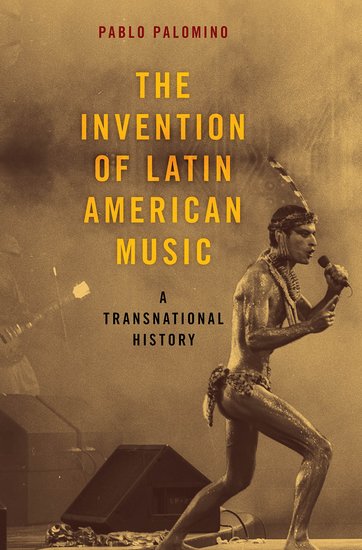
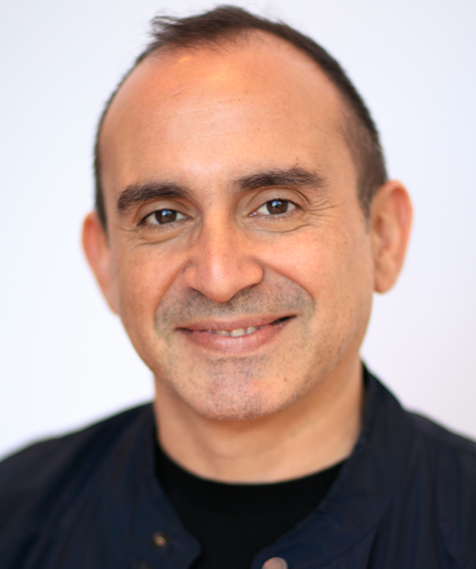
March 9 | 5:00 - 6:15 PM
Pablo Palomino – Associate Professor of Latin American and Caribbean Studies, Emory University
The Invention of Latin American Music
Pablo Palomino
Read more about the book and author
About the Book
The Invention of Latin American Music offers a transnational history of Latin America as a region, it uses a multidisciplinary approach to connect music with society, culture, and politics, and lastly, it challenges the ethnocentric assumptions and preconceptions about Latin America’s unity.
About the Author
Pablo Palomino is a cultural historian with a specialization in modern Latin America and teaches at Emory University’s Oxford College. A native of Argentina and Licenciado from the University of Buenos Aires, he did his Ph.D. at the University of California, Berkeley, and was also a postdoctoral lecturer at the University of Chicago.
His first book, The Invention of Latin American Music. A Transnational History, was published by Oxford University Press in 2020. His research and teaching include the transnational cultural history of Argentina, Brazil, and Mexico, as well as the formation of Latin America as a region. Palomino worked at Memoria Abierta, an Argentine alliance of human rights organizations that created Latin America’s first Oral History Archive on state terrorism and political violence. His articles deal with the cultural history of music, Pan-Americanism, the Jewish diaspora in Latin America, modernist press in Argentina, and the critique of the concept of “Global South.” He is currently working on two global histories: the cultural history of Argentine meat, and the history of “Latin America” as a conceptual and institutional category.
He lives in Atlanta since 2017 and is enamored of the city and fascinated by its relations to the nation and the globe.
Spring 2021 Events
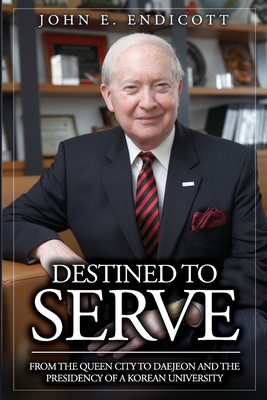
Feb. 17 | 10-11 am
John E. Endicott – Woosong University president and former Georgia Tech professor
Destined to Serve: From the Queen City to Daejeon and the Presidency of a Korean University
John E. Endicott
Read more about the book and author
About the Book
Destined to Serve: From the Queen City to Daejeon and the Presidency of a Korean University
This is the story of a Cold Warrior who experiences the dangers of total nuclear war from the Underground War Room in SAC Headquarters during the Cuban Missile Crisis and later, flying targeting missions during the early days of America’s involvement in Vietnam. More importantly, Endicott’s story and ultimate mission in life is the work he has done to the control and reduction of nuclear weapons and the development of regional peace through the internationalization of higher education in Northeast Asia. And he still believes the best thing he ever did in life was to marry his wife of 60 years, Mitsuyo, from Japan.
About the Author
John E. Endicott, President of Woosong University; Vice-Chancellor of SolBridge International School of Business, Daejeon, Republic of Korea
Dr. Endicott’s career spans 28-years in the U.S. Air Force, three years as SES-4 Director of the Institute for National Strategic Studies, 18+ years at Georgia Tech as Professor and Center Director, and 14 years as President and Vice-Chancellor of Woosong University in Daejeon, ROK. His Ph.D., MALD, and A.M. Degrees are from the Fletcher School of Law and Diplomacy of Tufts University in cooperation with Harvard; his M.A. is from Omaha University and his B.A.in Political Science (cum laude) is from The Ohio State University where he was inducted into the American academic society Phi Beta Kappa. He holds two honorary doctorates from the University of Toulouse, France, and Dankook University of Yongin, South Korea. In 1991 he introduced the concept for a Limited Nuclear Weapons-Free Zone in Northeast Asia (LNWFZ-NEA) which received nominations for the Nobel Peace Prize in 2005 and 2009. He has authored or co-authored six books primarily on Asian and U.S. security and political issues, including Japan’s Nuclear Option. His most recent book, his memoirs, Destined to Serve, was published in December 2020.
In March 2019 he was appointed to the Board of Advisors for the Republic of Korea Army Training and Doctrine Command (TRADOC). He holds a number of military decorations for his 31-year service in the U.S. Government, including the Defense Superior Service Medal, the Legion of Merit Medal, the Bronze Star Medal, the Meritorious Service Medal, Air Medal with Oak Leaf Cluster for 50 combat missions, the Air Force Commendation Medal with Oak Leaf Cluster, and the Vietnam Service Medal with 2 Bronze Stars, among others. In October 2019, he was notified that he has been awarded a Marquis Who’s Who Lifetime Achievement Award and will be included in subsequent publications of that organization.
Woosong University, which Endicott heads, is a medium-sized specialized university with a global mission. It has approximately 13,500 students (2,500 international) attending eight colleges: Railroad Transportation College, Hotel Management and Culinary Arts College, Digital Convergence College, and the Health and Welfare College (all primarily in Korean). SolBridge International School of Business (the fifth college) is an all-English language college created in 2007 offering BBAs and MBAs to over 1,600 students (pre-COVID Era). Thirty percent are Korean, 20 percent Chinese and 26 percent Russian speaking from Russia and Central Asia, and the rest of the 24% come from 62 other nations of the world and is AACSB accredited. As the sixth college, Sol International School offers specialized English language tracks in the four Korean language colleges. The Endicott College of International Studies, the seventh college at Woosong, offers courses in Korean and English language as the liberal arts college of Woosong. In the Fall Semester of 2020, the J.W. Kim College of Future Studies was added to especially address the needs of education in the 4th Industrial Revolution.

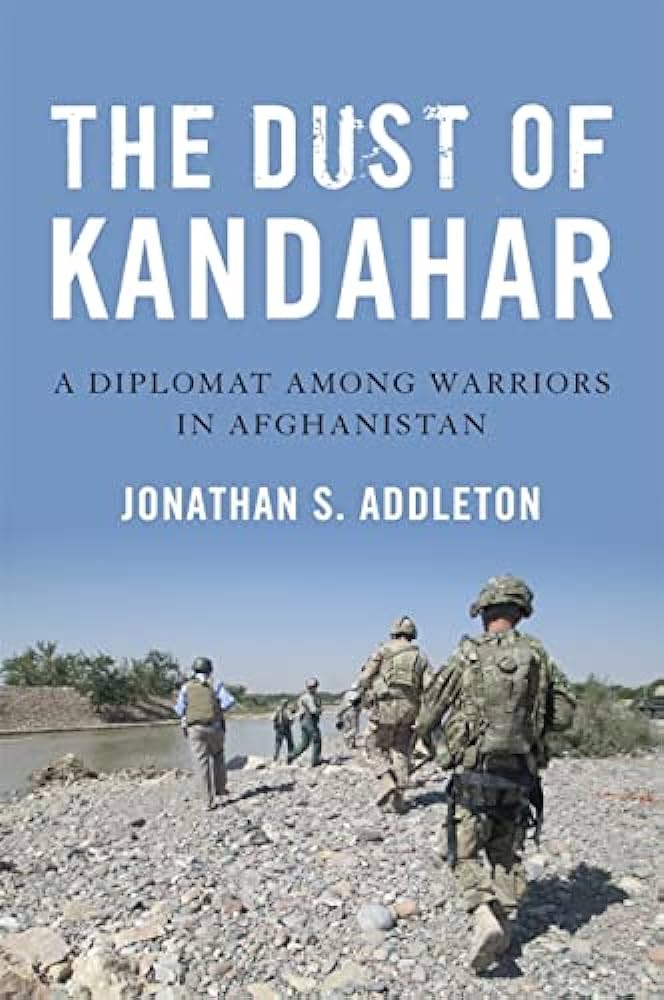
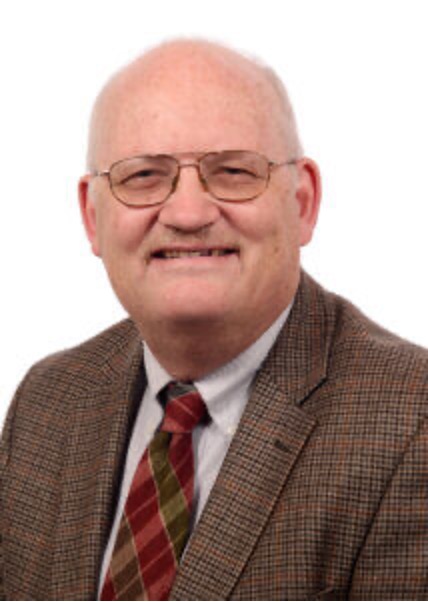
March 24 | 11 A.M. EST
Jonathan Addleton – Rector/President of Forman Christian College
The Dust of Kandahar
Some Far and Distant Place
Jonathan Addleton
Read more about the books and author
About the Books
The Dust of Kandahar: Diplomat Among Warriors in Afghanistan
The Dust of Kandahar provides a personal account of one diplomat’s year of service in America’s longest war. Ambassador Addleton movingly describes the everyday human drama of the American soldiers, local tribal dignitaries, government officials, and religious leaders he interacted and worked within southern Afghanistan.
Addleton’s writing is at its most vivid in his firsthand account of the April 2013 suicide bombing outside a Zabul school that killed his translator, a fellow Foreign Service officer, and three American soldiers. The memory of this tragedy lingers over Addleton’s journal entries, his prose offering poignant glimpses into the interior life of a U.S. diplomat stationed in harm’s way.
Some Far and Distant Place
Born in Pakistan to Baptist missionaries from rural Georgia, Jonathan S. Addleton crossed the borders of race, culture, class, and religion from an early age. Some Far and Distant Place combines family history, social observation, current events, and deeply personal commentary to tell an unusual coming-of-age story that has as much to do with the intersection of cultures as it does with one man's life.
Whether sharing ice cream with a young Benazir Bhutto or selling gospel tracts at the tomb of a Sufi saint, Addleton provides insightful and sometimes hilarious glimpses into the Muslim-Christian encounter through the eyes of a young child. His narrative is rooted in many unlikely sources, including a southern storytelling tradition, Urdu ghazal, revivalist hymnology, and the Anglican Book of Common Prayer. The natural beauty of the Himalayas also leaves a strong and lasting mark, providing solidity in a confusing world that on occasion seems about to tilt out of control.
This clear-eyed, insightful memoir describes an experience that will become increasingly more common as cultures that once seemed remote and distant are no longer confined within the bounds of a single nation-state.
About the Author
Jonathan Addleton, former U.S. ambassador to Mongolia and five-time USAID mission director, was born in Pakistan to a family of missionaries rooted in Macon, Ga., a history recorded in his memoir, Some Far and Distant Place. He recently left Macon to return to Pakistan as rector and president of Lahore’s prestigious Forman Christian College. The Dust of Kandahar recounts in diary form Dr. Addleton’s year among warriors as senior U.S. civilian representative in Afghanistan from 2012-13 as America began to wind down its “forever war.” With great empathy and detail, it describes events as prosaic as bureaucratic emails, as poignant as the “ramp ceremonies” held for fallen troops, and as harrowing as the April 2013 suicide bombing that killed Dr. Addleton’s translator, a fellow foreign service officer and three American soldiers, and nearly took his life.
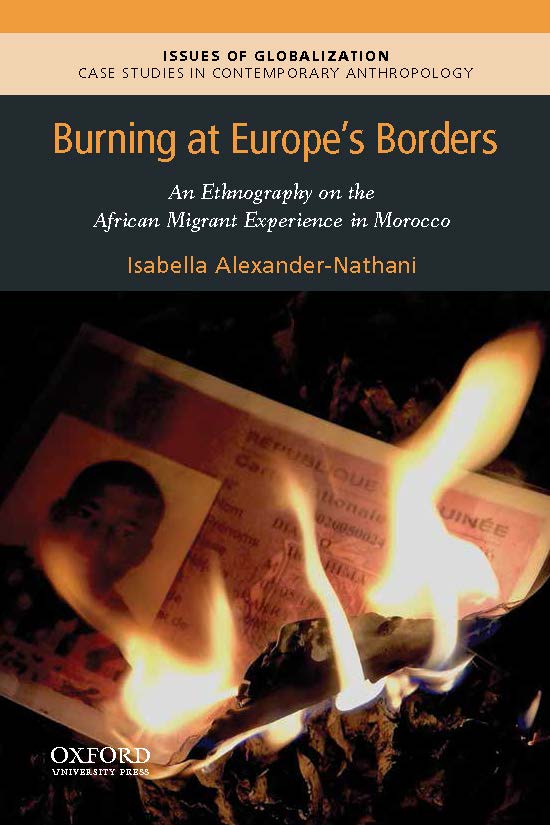

May 12, 1:30 P.M EST
Isabella Alexander-Nathani – award-winning writer, filmmaker, educator, and human rights activist
Burning at Europe’s Borders
Isabella Alexander-Nathani
Read more about the book and author
About the Book
In her heart-pounding and courageous debut, Dr. Isabella Alexander-Nathani uncovers an unseen side of our global migrant and refugee crisis.
Burning at Europe’s Borders invites readers inside the lives of the world’s largest population of migrants and refugees–the hundreds of thousands who are trapped in hidden forest camps and forgotten detention centers at Europe’s southernmost borders in North Africa. “Hrig,” the Arabic term for “illegal immigration,” translates to “burning.” It signifies a migrant’s decision to burn their papers, in order to avoid identification and repatriation on their long journeys to safer shores. But it also signifies their decision to burn their past lives, sacrificing themselves in hopes of reaching a future on the other side of the Mediterranean Sea. Alexander-Nathani examines this process of “burning,” traveling thousands of miles alongside those who have fled war and extreme poverty across the African continent only to find themselves trapped in Libya, Algeria, and Morocco. This book exposes the political agreements that have led to Europe’s control over African borders and the illicit practices that continue to mold North African countries into brutal holding cells for our world’s most vulnerable.
Burning at Europe’s Borders introduces new ways of doing anthropological research in the modern era, as Alexander-Nathani skillfully weaves images and individual stories into her analysis of changing migration flows at our world’s most critical border crossings. Her creative mixed-methods approach included community filmmaking practices and over three years of ethnographic research in African smuggling rings, hidden migrant brotherhoods, and European Union-funded detention centers. This is an ideal cross-over book, promising to engage students, scholars, policymakers, and popular audiences seeking to step inside the heart of our world’s greatest humanitarian crisis.
Burning at Europe’s Borders is a volume in the series ISSUES OF GLOBALIZATION: CASE STUDIES IN CONTEMPORARY ANTHROPOLOGY, which examines the experiences of individual communities in our contemporary world. Each volume offers a brief and engaging exploration of a particular issue arising from globalization and its cultural, political, and economic effects on certain peoples or groups.
About the Author
Dr. Isabella Alexander-Nathani is an award-winning writer, filmmaker, educator, and human rights activist. Trained as a cultural anthropologist, her work is motivated by her belief that storytelling has the power to humanize complex political issues and bring positive social change. Her latest book, Burning at Europe’s Borders (Oxford University Press, 2020) and related documentary film The Burning (Small World Films, 2020) uncover the human sides of our global migrant and refugee crisis. She currently serves as Founder and CEO of Small World Films, a non-profit production studio, which uses grounded research and social impact storytelling to lift the voices of marginalized populations to the global stage and fight for international policy change.
Isabella’s work has been featured on BBC, CNN, NPR, PRI, and Al Jazeera, and she is a regular contributor to SAPIENS, where she writes a monthly column called “Borders.” Her recent speaking programs have brought her to stages around the world, including the United Nations General Assembly and the Parliament of the World’s Religions, where she has delivered keynote addresses on human rights to audiences of more than 10,000. In 2016, The American Anthropological Association presented her with the “Emerging Leader in Anthropology” award, and her latest projects have been supported by grants from The National Science Foundation. She is proud to serve on the Advisory Board for several non-profit organizations, including The Global Village Project, the first school designed specifically for refugee girls; Stories Found, an organization equipping African youth with filmmaking skills and technology; and SAPIENS, a digital journal focused on connecting social science research to the public.
Originally from the southern United States, Isabella has called New York, Paris, Chicago, Rabat, Atlanta, and Bamako home over the years. She earned her degrees from New York University (BA), the University of Chicago (MA), Emory University (MA, PhD), and the Spéos Institute in France (MFA), and she has held a faculty positions in the Departments of Anthropology and Film Studies at Emory University and the Department of Social Sciences at Université Mohammed V, Morocco’s National University. While her work frequently brings her to New York, Geneva, and across North Africa, she now happily calls Santa Barbara, California home, where she lives with her partner, Amit Alexander-Nathani, their son, and their two rescue dogs, Willow and Bear.

